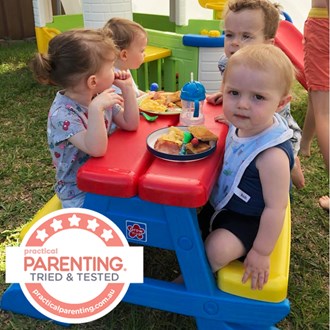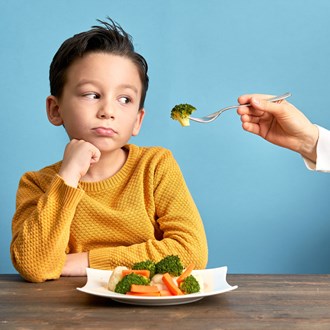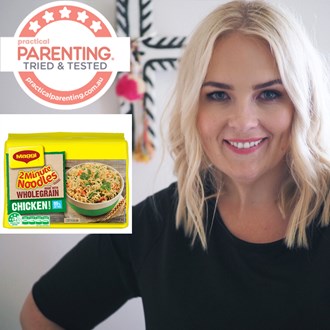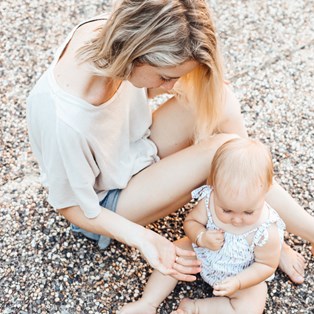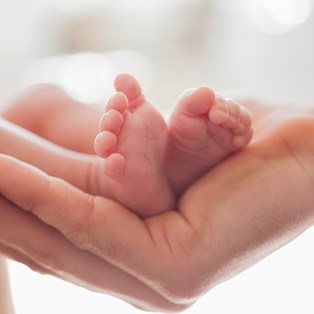Five questions every pregnant woman has about food!
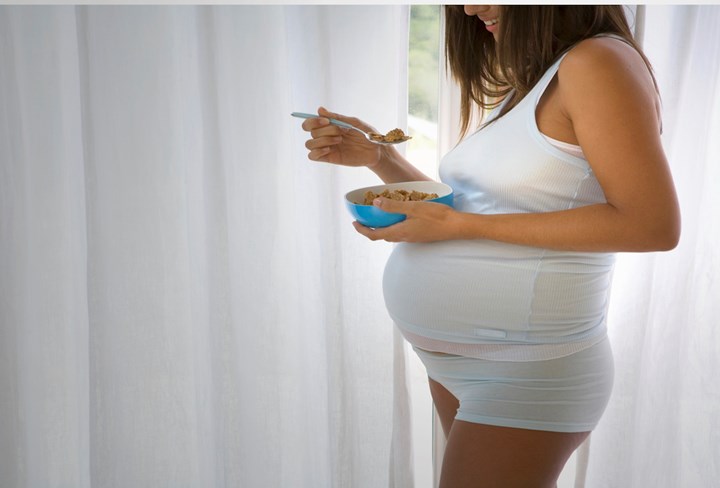
Practical Parenting expert Jaime Rose Chambers tackles the big questions!

By Jaime Rose Chambers
Accredited nutritionist and dietitian and Practical Parenting expert / July 16 2018
Pregnancy is a wonderful but often confusing time, particularly when it comes to what to eat and how to nourish you and your bub in the best way possible. So here are the five commonly-asked questions about nutrition and pregnancy!
Do I really eat for two? If not, how much should I eat when pregnant?
Eating for two is a bit of an old wives tale and does get some women into a bit of trouble managing their weight throughout and after pregnancy. The general guidelines for energy intake throughout pregnancy are:
- Pregnant women can in theory maintain a normal, healthy diet into the start of their pregnancy with a focus on nourishing foods. The first trimester there is no requirement for extra calories/ kilojoules.
- If you begin pregnancy with a low weight, then you can eat a little more, if you begin pregnancy with a high weight, the you can eat a little less. Make sure to see a dietitian for specific recommendations.
- Energy requirement gradually increases into the second and third trimester as the baby grows. The recommendations are an increase of approximately 350-450 calories per day extra on top of usual calories requirements.
- Total energy requirements will be 2,200 calories (9,200kJ) to 2,900 calories (12,120kJ) per day in the second and third trimester. That is equivalent to an extra couple of snacks or a light meal per day.
Are pregnancy cravings my body telling me I need certain nutrients? Should I give into them?
This is a very controversial topic and more research is needed on pregnancy cravings for foods high in salt or magnesium and whether that is due to a nutritional deficiency. However the most recent research shows that if cravings are for not-so-healthy foods like chips or ice cream, giving in to them too often isn’t great for us. This is because it can cause unwanted weight gain and as a dietitian my concern is that it might take the place of where you could be having a healthier meal or snack.
Having some good food alternatives available when a craving hits can sometimes help – for example if the craving is for salty chips – try a wholegrain cracker with butter and Vegemite. If the craving is for creamy dairy like vanilla ice cream, try for a vanilla yoghurt. I know! It's often easier said than done though!
What can I eat or drink to stop me feeling nauseous?
Anything ginger can help, particularly ginger tea. Some women find soda/mineral water helps too, as well as peppermint tea.
Another good tip is keeping your blood sugar levels stable. That’s why dry crackers or bread often do the trick to supress nausea for a while and why when your nausea is worse because you're not eating, it can be due to a drop in blood sugar levels.
Some tips to help with this are:
- Try to plan out meals and snacks as much as you can manage
- Eat small, frequent meals through the day - roughly every 2-3 hours or so
- Meals and snacks should contain some good carbs (wholegrain crackers or bread and fruit) which can help to keep those blood sugar levels regulated and hopefully keep a lid on the nausea.
Please see your doctor for extra support if you aren’t getting relief and having trouble keeping any food down.
What are the main nutrients I need during pregnancy?
Folate Helps to prevent neural tube defects and is usually well-covered in pregnancy in supplement form but you can also get it from green leafy veg, pulses and legumes.
Iron Requirements increase in pregnancy because blood volume increases by about 50% towards the end of pregnancy. Pregnant women need double the iron intake than non-pregnant women do (27mg per day). The best sources are from iron-fortified cereals, red meat, chicken and legumes and green leafy veg and maximise absorption by adding vitamin C containing food to the meal like lemon juice or tomato.
Calcium & Vitamin D Help to build little skeletons and teeth while also maintaining mum’s bone density. Women need 1,000-1,300mg per day. The best sources are by far dairy products. Aim for three servings per day (1 serving = 1 cup milk, 200mL yoghurt, 40g cheese). Broccoli and kale, tinned salmon with bones and some foods calcium-fortified foods also contain calcium. The best source of vitamin D is from a little safe sun exposure but oily fish and mushrooms also contain some.
Omega 3 fatty acids Particularly a form called DHA are important in pregnancy for foetal brain development. It is found most abundantly in oily fish like wild salmon, tuna, trout, mackerel, sardines and herring. Tinned is fine! Aim for about 3 serves per week. You can also get some omega 3’s from chia seeds and flaxseeds and walnuts.
Fluids Recommendations increase in pregnancy because of an increase in blood volume and more peeing. The general recommendation is at least 2.3L of fluids per day.
Find Jaime online
Facebook: facebook.com/jaimerosenutrition
Instagram: instagram.com/jaimerose_nutrition/
Website: jaimerosenutrition.com.au/

